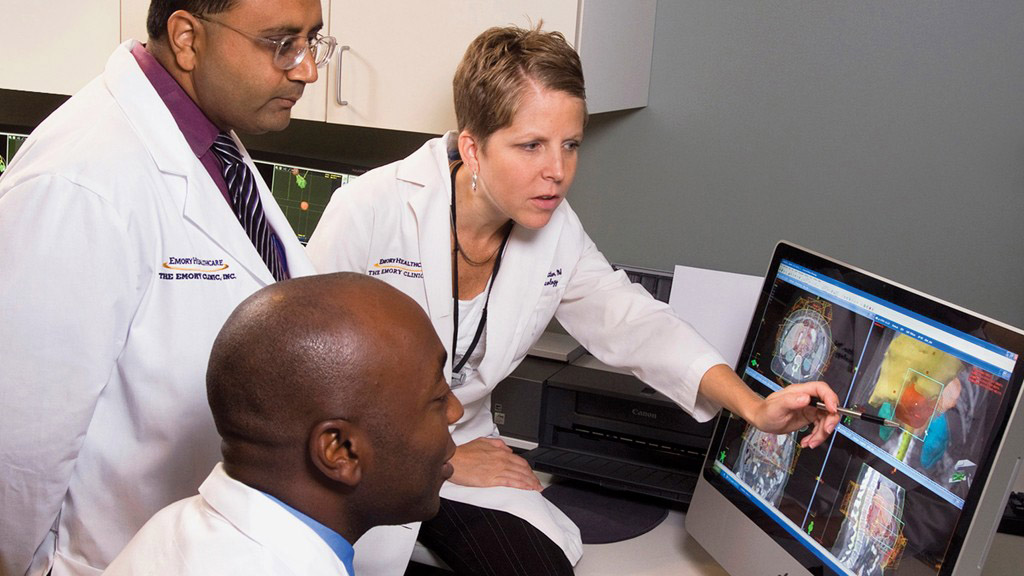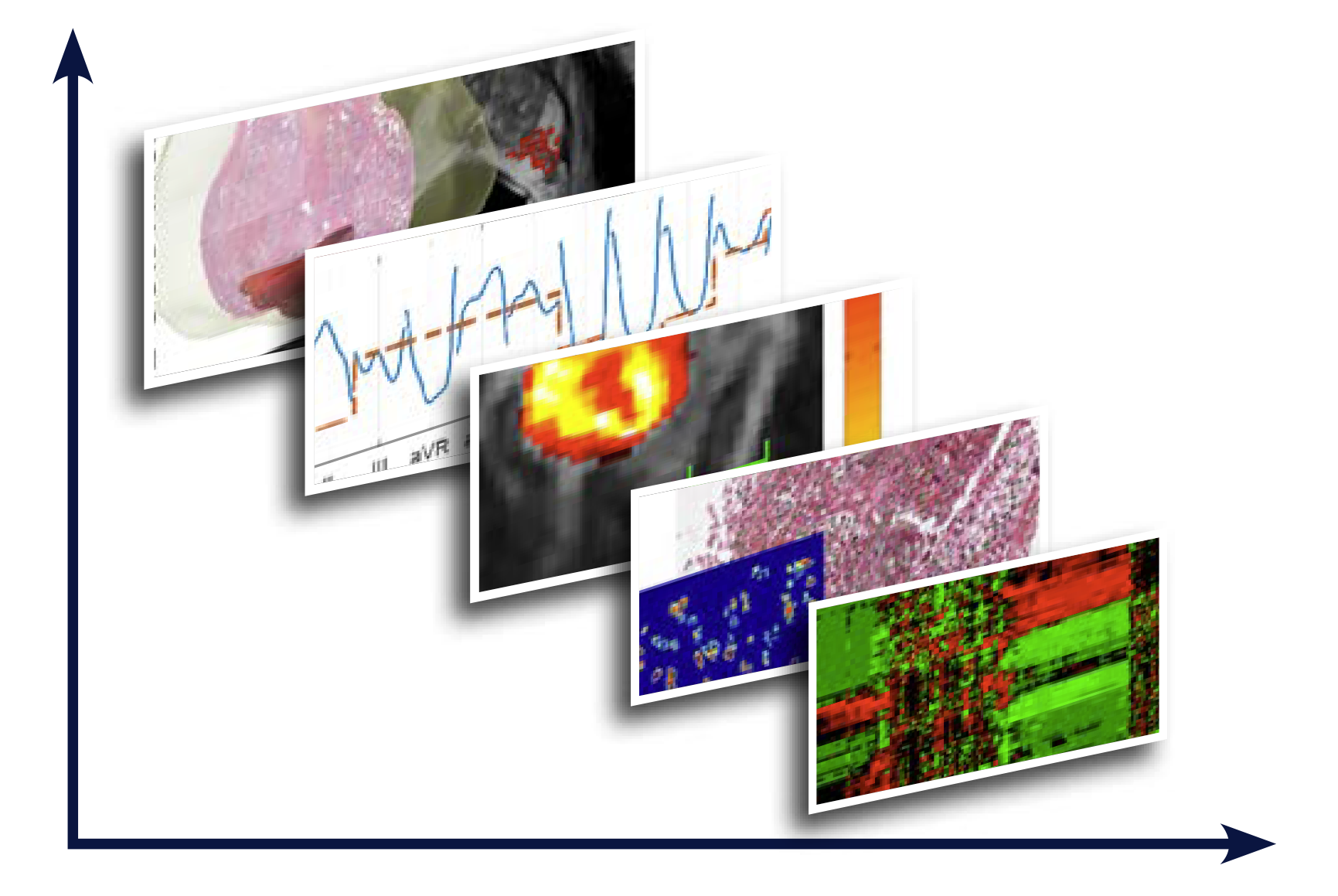
Research
A Unique AI Approach
Through a combination of sensitivity and pattern recognition beyond human perception, AI-based tools can analyze patient medical and tissue imaging and cross-reference vast data sets in the context of genetically and symptomatically similar cases. Anant Madabhushi's team has added even more value to these tools through an interpretable approach.
His team has developed algorithms that can find tell-tale patterns in the vascular system and analyze morphologic information including patterns, shapes, and spatial architecture of individual glands and cells to provide data that is easily interpretable. This has huge benefits for busy health care providers, helping to streamline the decision-making process and guide patients.

Emory Empathetic AI for Health Institute benefits from the expertise and leadership of world-class researchers and clinicians across Emory University, including the highly ranked School of Medicine, Nell Hodgson Woodruff School of Nursing, and Rollins School of Public Health. Emory and Georgia Tech share the No. 1–ranked Wallace H. Coulter Department of Biomedical Engineering.
A Case Study
The Madabhushi team currently collaborates with Tata Memorial Centre, a national cancer center in Mumbai, India, to develop and validate an inexpensive tissue-image-based predictor for identifying women with early-stage breast cancer to determine who will benefit from chemotherapy and who may not need it. The differences between the current standard for such testing, Oncotype DX, and this new technology, IbRis, are dramatic:
| Comparisons | Oncotype DX | IbRis |
|---|---|---|
| Test Cost | $4,600 | $4.60 |
| Wait Time for Results | 2 weeks | 20 minutes |
| Tissue Specimen | Destroyed | Digitized |
| Accessibility | US | Worldwide |
Research Focus Areas
Cancer
Researchers are developing novel algorithms, approaches and frameworks across a spectrum of diseases in the oncological space, including breast cancer, brain tumors, colorectal cancer, lung cancer, oral and oropharyngeal cancer, prostate cancer, and renal cell carcinoma. With partners, projects run the gamut of data modalities, from using digitized tissue biopsies for risk stratification to creating imaging tools for predicting response to treatment.
Global Health
Diseases pay no heed to borders; therefore AI.Health will strive to improve the health of people worldwide through the use of low-cost diagnostic tests. One prime example is the collaboration with the Tata Memorial Centre, a national cancer center in Mumbai, India, focused on cancer prevention, treatment, and research. AI.Health and Tata are developing and validating an inexpensive tissue image-based predictor for identifying early-stage breast cancer to determine who will benefit from chemotherapy and who may not need it.
Health Disparity and Social Impact
Through AI.Health, researchers are using AI to reveal differences in biomarkers between populations, for example, examining which groups are more susceptible to prostate cancer or breast cancer compared to their counterparts. This work aims to provide population-specific AI risk assessment tools as well as addressing the issue of unintended influences in the field of AI.
Ophthalmology
AI.Health develops and validates innovative analytical methods for diagnosis and predicting response to advanced therapy in patients with retinal disturbances due to long-standing diabetes. While other AI-based approaches show promise in diagnosis, novel approaches in identifying the architecture of the retinal vessels, as well as quantifying the shape and engorgement of vessels in the retina, could provide ophthalmologists a decision support tool to help select patients more likely to respond to targeted retinal therapy.
Kidney Disease
Although cancer leads in utilizing big data, other diseases are catching up, including kidney diseases. The National Institute of Diabetes and Digestive Diseases and Kidney Disorders has called for precision medicine initiatives inspired by the cancer community. The team is developing and applying novel machine learning tools for notation of structures within kidney pathology images. This will allow for construction of annotated kidney atlases, which could lead to the discovery of prognostic morphologic outcome signatures for FSGS.
Therapy Response
Researchers at AI.Health are developing and validating tools to predict therapy response, no matter the disease. The team is developing AI and neuroinformatics tools to utilize MRI, CT, and digital pathology images to identify which brain, rectal, and lung cancer patients are most likely to respond to therapy and to predict treatment response to tumors following chemo, radiation, and immunotherapy.
Cardiovascular
Up to 6.1 million people in the US have atrial fibrillation, the most common heart arrhythmia. Research at AI.Health has focused on tackling this very important problem. The team actively collaborates to harness computerized descriptors from routine MRI images to predict which AFib patients are more inclined to experience recurrences after curative ablation. Additionally, the team is looking at computational image analysis of biopsy scans to identify which patients are the best candidates for heart transplantation.